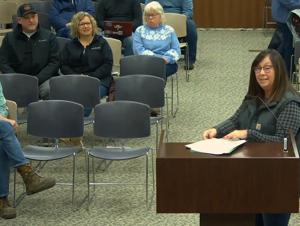
Florida’s state government has ordered the city of Delray Beach to remove its rainbow crosswalks by September 3, 2023, or face state intervention. The demand, issued by the Florida Department of Transportation, has sparked significant debate about local governance and LGBTQ rights. If the city fails to comply, it will also be billed for the removal costs.
Steven C. Braun, the southeast Florida district secretary of the Department of Transportation, warned that any further violations by Delray Beach could lead to the immediate withholding of state funds. This ultimatum has raised concerns among local officials and residents about the implications for community values and autonomy.
The rainbow crosswalks, seen by many as a symbol of pride and inclusivity, have faced previous vandalism attempts. In response to the state’s directive, the Delray Beach City Commission decided to challenge the state in an administrative hearing during an emotional meeting on August 19, 2023. Despite their determination, some commissioners expressed doubts about the outcome of the appeal, fearing potential financial repercussions from the state.
Local leaders are now at a crossroads, caught between the desire to stand up against what they perceive as overreach from state authorities and the fiscal realities that compliance may bring. Commissioner Rob Long articulated a sentiment shared by many, stating, “The state should not dictate every detail of our local governance, especially when it comes to the character and values of our own community.”
The situation mirrors historical struggles for local autonomy, akin to the Boston Tea Party’s resistance against perceived tyranny. If Delray Beach succumbs to state pressure, it could set a precedent for other communities facing similar demands from state officials. The implications extend beyond aesthetics; they raise fundamental questions about local governance and community identity.
Ron DeSantis and former President Donald Trump have been criticized for what some view as authoritarian tactics, including the push to standardize educational content and impose specific values on local communities. These actions have led to fears about the erosion of freedoms and the rise of a politically correct atmosphere dictated by those in power.
The potential consequences of capitulating to state demands are significant. Local leaders worry that future directives may extend beyond rainbow crosswalks, potentially affecting educational curriculums and cultural representations. Past comments by DeSantis, suggesting that slavery contributed positively to skills development among African Americans, highlight the contentious nature of the discussions surrounding educational content.
Historian Timothy Snyder emphasizes the dangers of anticipatory obedience in his book, “On Tyranny: Twenty Lessons from the Twentieth Century.” He warns against complying with authoritarian demands before they are imposed. His advice is particularly relevant for Delray Beach as it navigates this challenging landscape.
In light of these tensions, Delray Beach faces a crucial decision. Local officials have an opportunity to stand firm against what they view as an infringement on their community’s values. By resisting state pressure, they can demonstrate the importance of local governance and the right to self-determination.
As the deadline approaches, the actions of Delray Beach’s leaders will resonate beyond their community. The outcome of this dispute could serve as a litmus test for other municipalities facing similar challenges. The stakes are high, as the principles of democracy, local autonomy, and individual rights hang in the balance. The residents and leaders of Delray Beach must weigh the moral implications of their choices, as the future of their community and its values is at stake.







